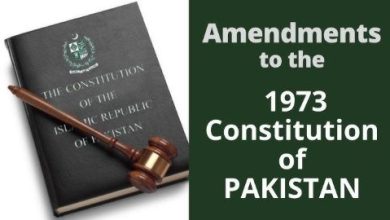Understanding the Dynamics of Dissent

When people feel that their voices are not being heard, they may turn to protest as a means of expressing their grievances and demanding change
By Muskan Shah | Islamabad
Protests have been a cornerstone of human expression and dissent throughout history. From civil rights movements to anti-war demonstrations, protests have shaped the course of human events and brought about significant social and political change. Protests often arise from a sense of injustice, frustration, or discontent among a group of people. They can be sparked by a wide range of issues, including economic inequality, social injustice, political repression, or environmental concerns. When people feel that their voices are not being heard, they may turn to protest as a means of expressing their grievances and demanding change. It can take many forms, from peaceful demonstrations and marches to more confrontational tactics like civil disobedience and direct action. They can be organized by individuals, groups, or organizations, and can be fueled by social media and other digital platforms.
Protests are more likely to be successful when they have a clear and focused message, as well as specific, achievable goals. Well-organized protests with effective leadership can help to mobilize supporters, manage logistics, and negotiate with authorities. Nonviolent protests are often more effective than violent ones, as they can help to build public support and avoid alienating potential allies. Protests that receive media attention can reach a wider audience and build momentum, especially if the coverage is sympathetic to the protesters’ cause.
However not all protest achieve their intended goals and some ultimately fail to make a lasting impact.
Protests that are unclear or unfocused can struggle to build momentum and achieve their objectives. Protests that turn violent or involve destructive behavior can alienate public support and provide authorities with a pretext for cracking down. Protests that are poorly organized or lack effective leadership can struggle to mobilize supporters and achieve their goals. Governments may respond to protests with repression, using tactics like force, intimidation, or arrests to quell dissent.
A recent protest
As a law student I observed that the recent TLP (Tehreek-e-Labbaik Pakistan) protest primarily centered around solidarity with Palestine, with demands to boycott Israeli products, send aid to Gaza and declare Israeli Prime Minister Benjamin Netanyahu a Terrorist. We all Pakistani demands such things to show love and sympathy for Gaza and Palestine. But the protest had been marred by violence, resulting in clashes with law enforcement, injuries and fatalities so the government responded to the protest had been to impose restrictions, including suspension mobile internet services, blocking some routes in Islamabad and Rawalpindi because they wanted to continue the protest from Lahore to Islamabad. The government enforced section 144 to prohibit public gathering so the protest was failed because of some flaws like it turned violent with clashes between protesters and law enforcers resulting in injuries and fatalities. The TLP’s actions were criticized for undermining the state’s authority and disrupting law and order.
Some critics argue that the protest’s objectives are unclear or unrealistic. TLP was accused of spreading hate and radicalization through social media and public rallies. The Government’s response to the protest had been inconsistent with some critics arguing that it had been too soft on the TLP while others argue that it had been too harsh.
Citizens faced so much difficulties those days, as they could not attend offices and schools properly, faced environment of panic and the capital’s system was so much disturbed. The protest never means to spread terror and create an atmosphere of panic. It should be peaceful to exert pressure for getting the genuine demands accepted.
Read: Crises Unfold: Pakistan’s Darkest Hour
__________________
Muskan Shah, based in Islamabad, is the law student. E-mail: syedamuskanshah2001@gmail.com




